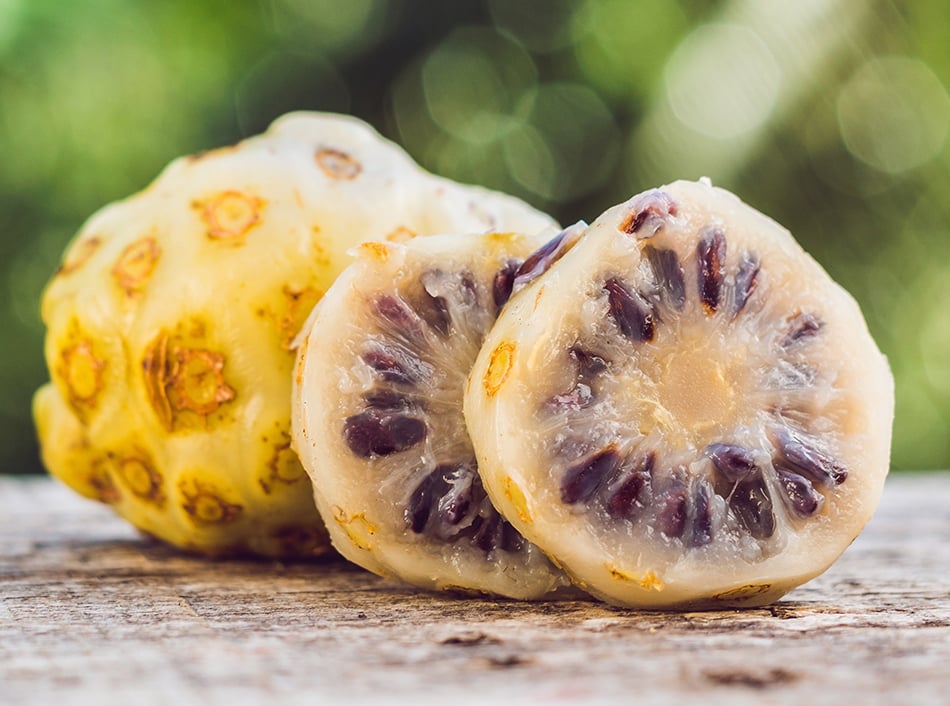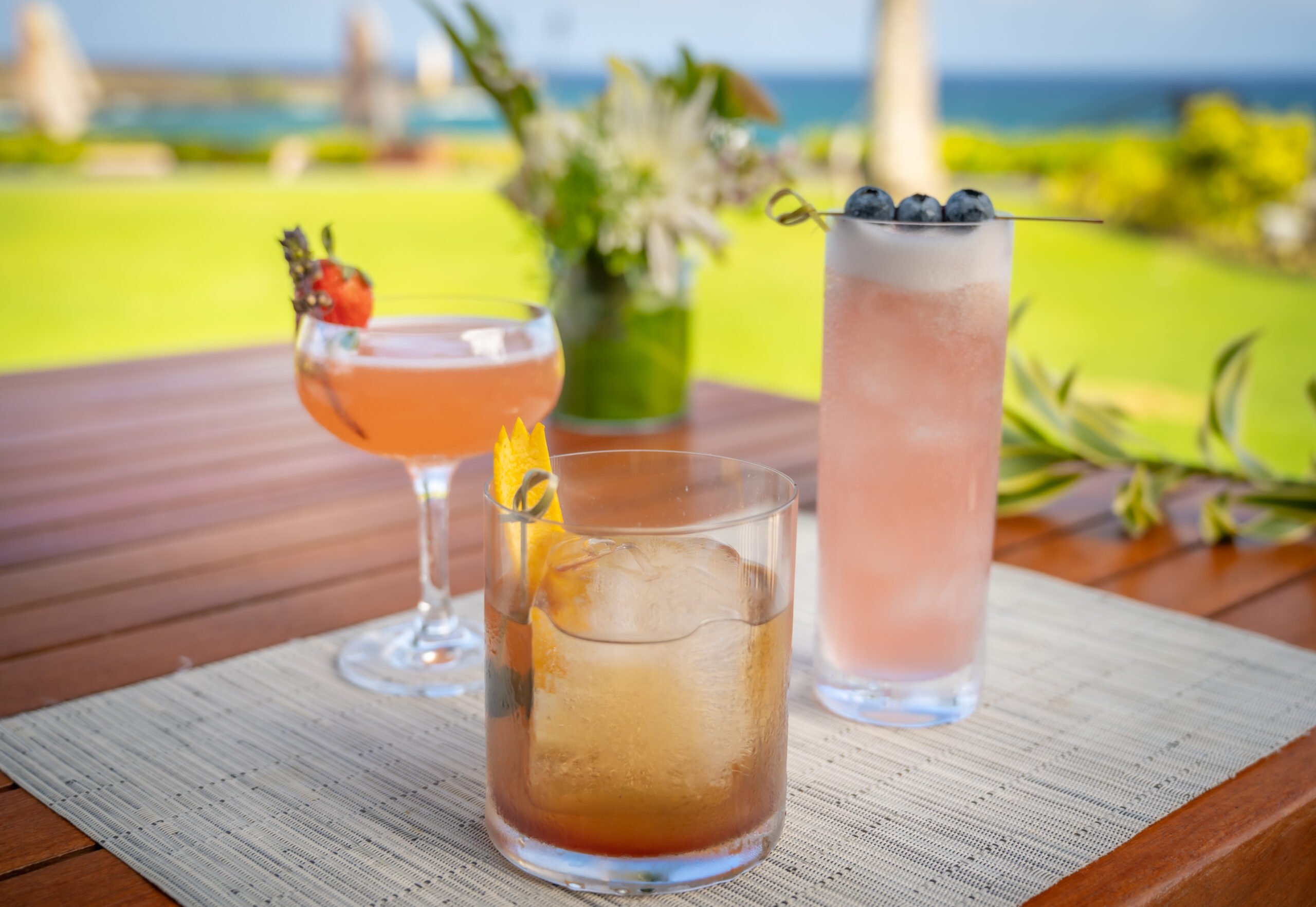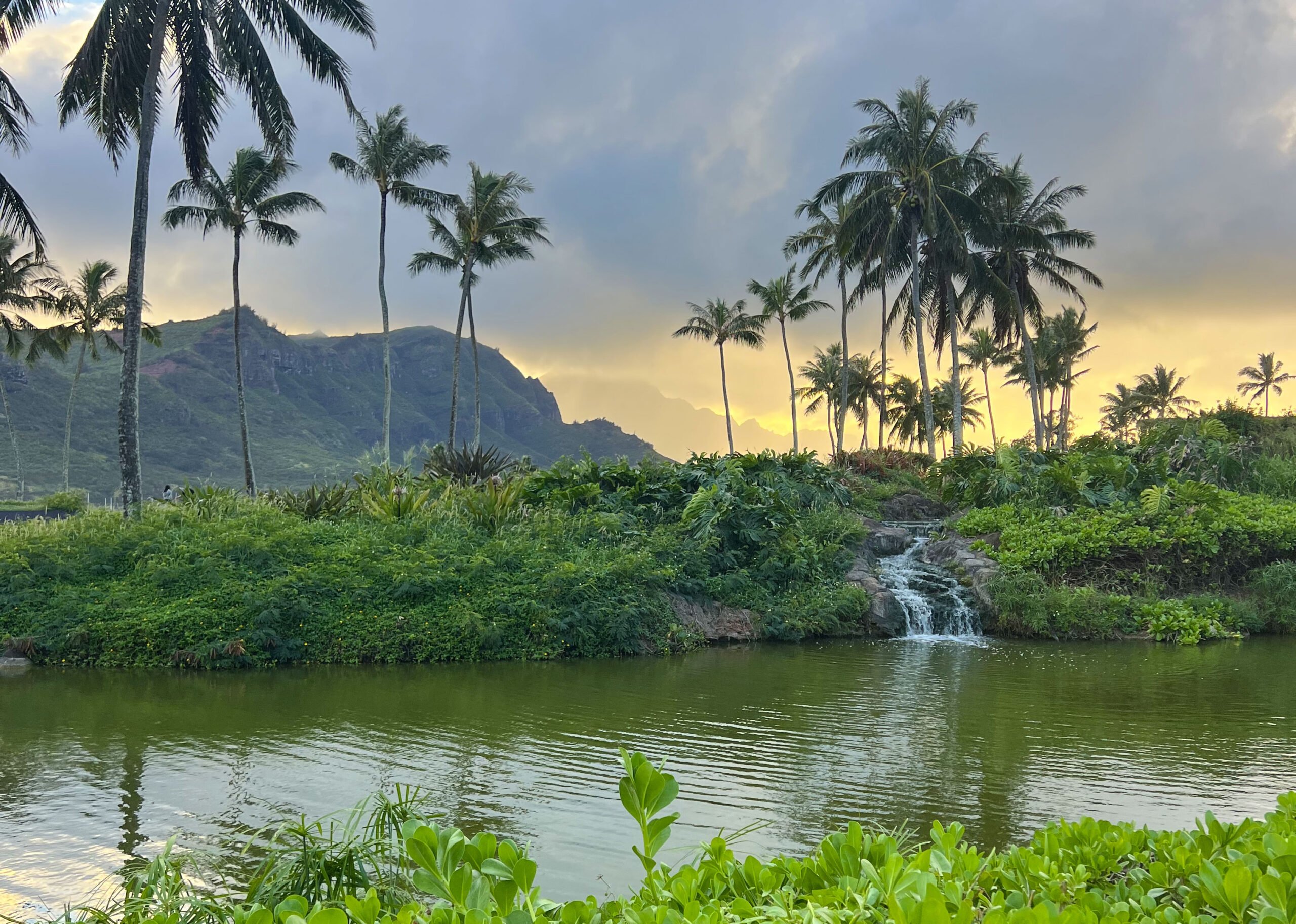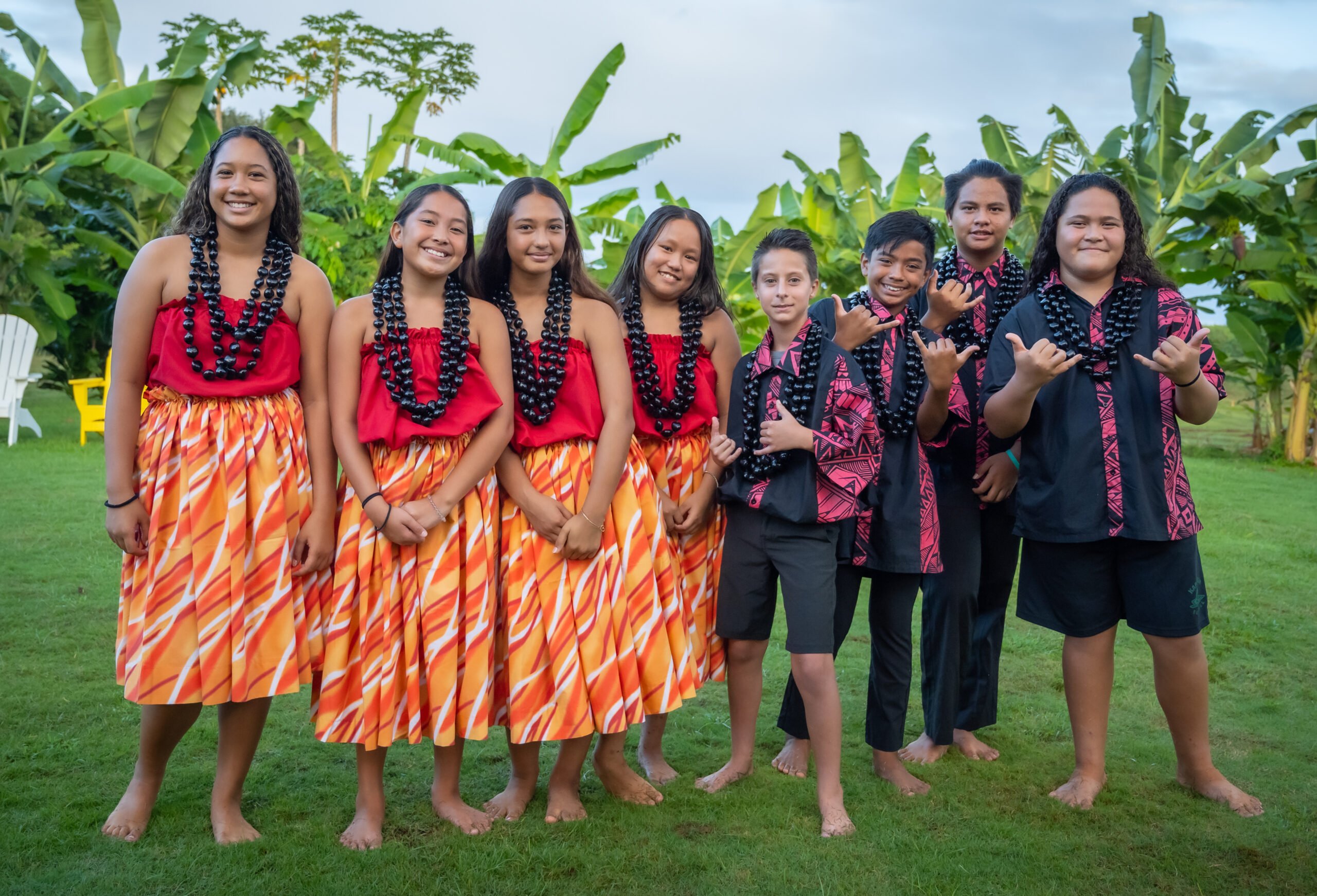The History of Noni
July 22, 2022

Noni…friend to the endangered honeybee, antioxidant-rich superfood, natural first aid, fire starter, and clothing dye. What CAN’T noni do?! Whatever you do, don’t judge this incredible natural resource by its scent. It’s commonly sniffed out by its unique smell which is akin to blue cheese. However, do not be fooled by this strange smelling (and looking) fruit, as it holds many very special purposes in Hawaiian culture.
Here at The Farm at Hōkūala, we prioritize nurturing not only the crops, but the culture behind sustainable organic farming. Our farm tours are so special because it is an opportunity to educate our owners and guests about the value of canoe crops in Hawaiian culture, and help them to understand how important respecting and nourishing the ʻāina is. The Farm tours offer a glimpse at our bountiful (and ever-growing) landscape on the farm. Guest will see everything from greens, fruits and vegetables to edible flowers, pineapples and 12 traditional Hawaiian canoe plants like kalo, noni and breadfruit. Beyond supporting our on-site Hualani’s restaurant, bar and spa with fresh ingredients, The Farm also aims to promote conservation, agri-education in our local community and to serve as the cornerstone of our Ahupuaʻa (village), making our roots here even stronger.
Among the canoe crops on site, is noni. Noni provides many medicinal benefits, and can be used in the preparation of dyes for kapa, and the cooking of traditional foods. Prominent in coastal tropical areas like Hawaii, noni is the perfect crop for sustainable living. With a year-round crop season, noni served Hawaiian ancestors with an ideal crop in times of famine. Today, noni is used primarily for its health benefits through juicing and the making of tonics and teas. As you may have read in our previous blog on Canoe Crops, noni has been a staple in Hawaiian culture for generations. With incredible healing powers, much of the noni fruit’s uses have been passed down from generation to generation through trusted healers in the community.
Noni was brought to Hawai’i by Polynesian voyagers, and as with most canoe crops, it is a very versatile plant. In ancient times, noni (or morinda citrifolia,) was primarily consumed raw and rarely cooked. The fruit was consumed in various forms from green to ripe for health benefits that included enhanced immunity, digestion, and a significant source of antioxidants. The leaves of the plants were used as outer wraps with varying poultices for injuries including sprains and fractures and other inflammations of the body. The leaves would also be used to dress topical burns and as a fever reducer. Noni leaves were sometimes used as a protective wrap in cooking traditional meat dishes as well. The trunks of the plant were used to fashion digging sticks, canoe paddles, and used as firewood for cooking. The roots and bark of the noni plant were known to produce reddish and yellow colored dyes in kapa (traditional cloth) preparation.
Today, noni is used as an herbal immunity booster which has proven to work well as supportive treatment for diseases such as cancer, arthritis, and diabetes. It’s also used topically for muscle and joint pain, popular among athletes or weary hikers. A fellow farm to our north called Hawaiian Organic Noni Farm has created a noni lotion with menthol crystals and camphor oil specifically for pain relief or inflammation, for example.
Here on The Farm at Hōkūala, we’ve noticed that honeybees LOVE noni. Ironically, noni does not require pollination from the bees to flourish, but the bees love them all the same. Noni trees are a great source of nectar and pollen, and the bees do not need to panic…we are organic! Organic farming plus Kauai’s bee-friendly weather have created a beautiful friendship that we hope to nurture for years to come.
Preserving and caring for our natural resources is a driving ethos for Timbers, and one that we love to share with our owners, guests, and community members. We invite you to visit Farmer Samuel at The Farm at Hōkūala for an immersive experience among the bounty of native crops flourishing there, and of course, to visit the almighty noni tree.







